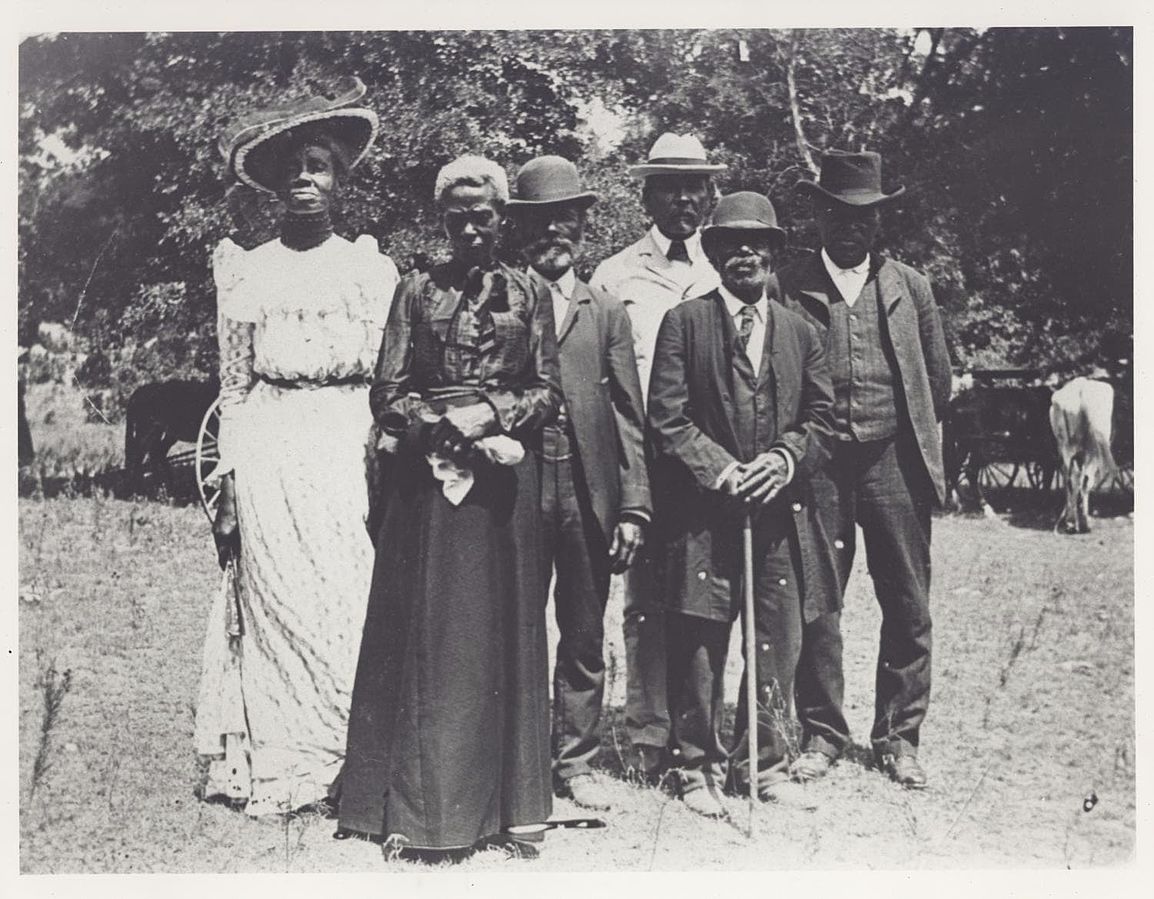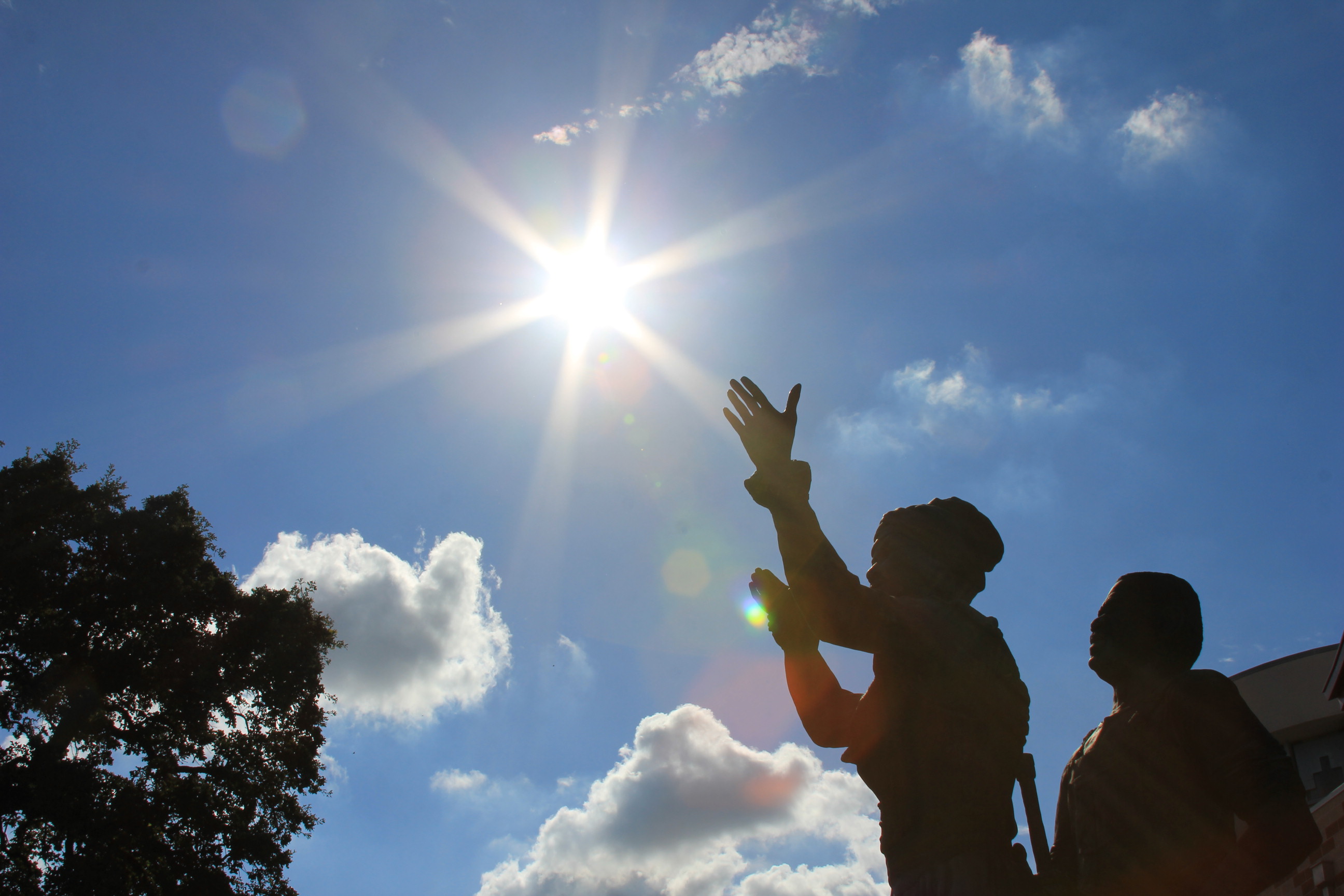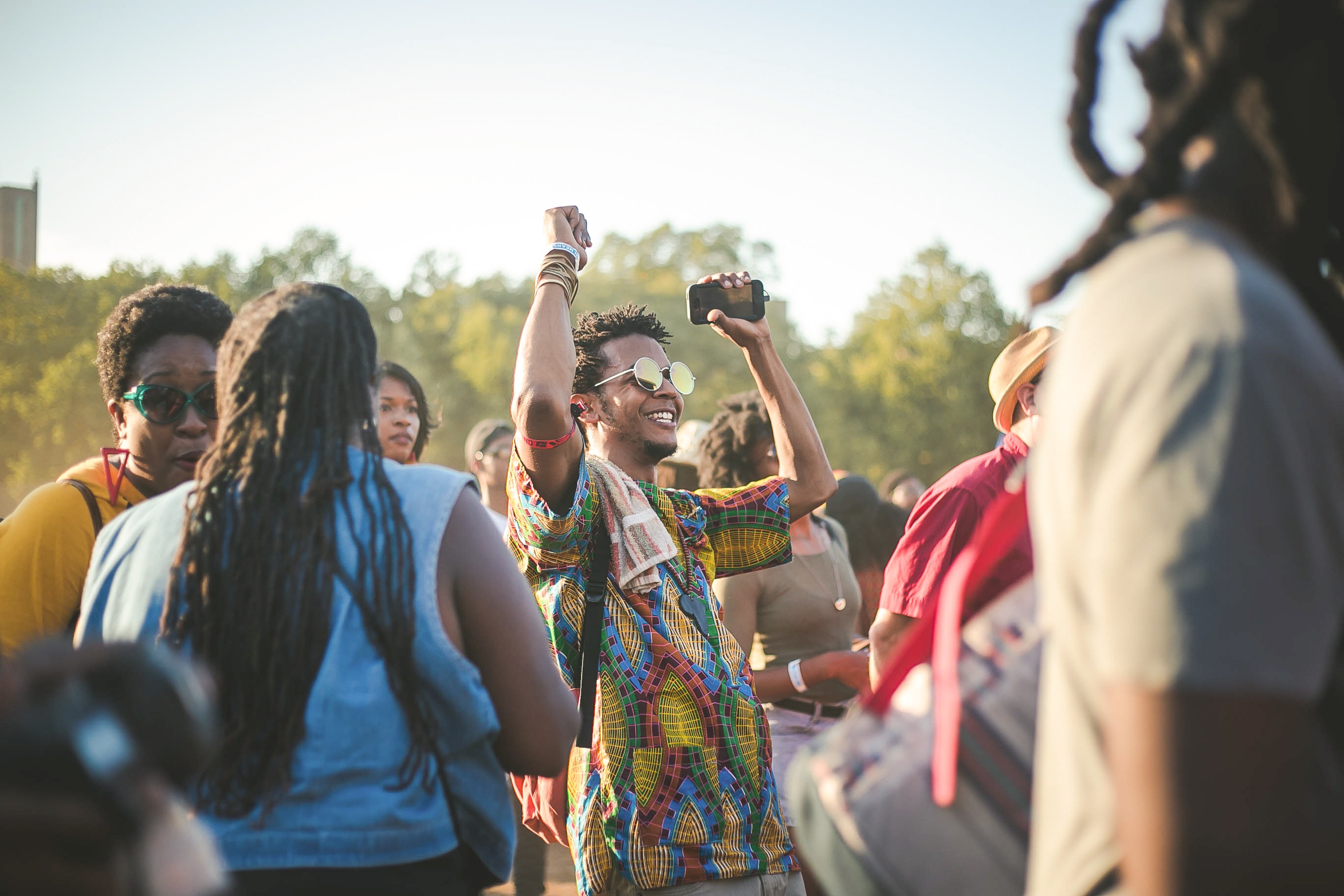Our Juneteenth staff picks

People around the nation took Friday, Juneteenth, to celebrate, mourn, observe and learn about Black history and culture — and how to be antiracist. Here’s what our @ASBMB staff recommends.
“We Were Eight Years in Power: An American Tragedy” by Ta-Nehisi Coates. This is a powerful read that taught me things my public school education flinched away from. It’s framed in terms of the resonance of Reconstruction and the Obama presidency. My main takeaway: Liberation takes long-term commitment.
"Julie" a ballad by singer-songwriter Rhiannon Giddens, is about a conversation that takes place between a Black woman named Julie and the white woman who believes she owns her, as the Union army approaches, bringing emancipation. Giddens accompanies herself on a period-appropriate banjo. When I saw her perform this song in person, she introduced it by explaining that it’s based on a real memoir — and that one of the most striking parts of the conversation, for her, was the depth of the white woman’s ignorance of the suffering she has put Julie through. I think about that a lot.
“Sing, Unburied, Sing: a Novel” by Jesmyn Ward.
— Laurel Oldach, science communicator
“The History of Juneteenth” A 27-minute episode on The Daily podcast with guest Raina Ramey Berry
“Harriet” Reviews for this movie point to several historical inaccuracies. Nevertheless, it introduced me to Harriet Tubman’s amazing life and to the Underground Railroad network, and for that I am eternally thankful.
“The Life of Frederick Douglass” An outstanding narrative of the dehumanizing conditions of slavery by Douglass himself.
— Quira Zeidan, education and public outreach coordinator
Letlhogonolo Mokgoroane (@Mr_Mokgoroane) of The Cheeky Natives (@CheekyNatives) podcast and Layla Saad, author of "Me and White Supremacy," talked about her work on Instagram live. Watch the interview here.

“Antiracist Baby” was written by Ibram X. Kendi (@DrIbram) and illustrated by Ashley Lukashevsky (@ashlukadraws). In this discussion, Kendi and Lukashevsky read the story together and discuss its message and the meaning of the illustrations. The way the book explains systemic failures and focuses on love is powerful. During the conversation, Kendi says: “I don’t think we should underestimate the ability of our little ones to learn and to understand this.” And Lukashevsky says: “This book really is a celebration of love.” Lukashevsky posted about the reading on Instagram and encourages readers to purchase the book from Black-owned bookstores, recommending Reparations Club in Los Angeles, which was featured in this New York Times article, "Buying Black, Rebooted."
ASBMB member Suzanne Barbour's honesty in this video is extremely powerful. In it, she recommends the books "White Fragility: Why It’s So Hard for White People to Talk About Racism" and "Me and White Supremacy: Combat Racism, Change the World, and Become a Good Ancestor."
Racial Justice NOW! (@RacialJsticeNow) is "committed to dismantling structural and institutional anti-Black racism in all areas of people activity." Learn more.
Will Jawando (@willjawando) is a councilmember in Montgomery County, Maryland, whose resolution declaring racism a public health crisis was unanimously passed on June 16.
The Rutgers Center for Security, Race and Rights (@RUCSRR) is hosting "#SystemicRacism in U.S. Law and Politics." Register for "Social justice lawyering during uprisings and pandemics" and "Dying while Black, COVID-19, and the failure of the legal system."
— Allison Frick, multimedia and social media content manager

My husband (@morenoreads on Twitter) uses an antiracist framework in his college writing classes. I read just about everything he teaches. Here are some of them.
-
The book “Seeing White: An Introduction to White Privilege and Race” (2011) is brilliant. I highly recommend it. It doesn’t read like a textbook, but it’s designed like one, with discussion questions and such.
-
“The case for reparations” by Ta-Nehisi Coates (2014) is essential reading for anyone who has ever lived in a piece of real estate, which is to say everyone.
-
I’ve read Coates’ book “Between the World and Me” (2015) multiple times and listened to the audiobook. I think hearing Coates read it makes a difference.
-
I read Eula Biss’ book “Notes from No Man’s Land” (2009) many years ago, and I plan to revisit it and her NYT essay “White Debt” (2015). I still have a lot to learn, and I think reading them today will be a completely different experience for me.
-
I recommend listening to Robin DiAngelo’s “White Fragility: Why It's So Hard for White People to Talk About Racism” (2018) on audiobook because the narrator is talking. I think hearing people talk about racism helps us to talk about racism, which is what the book is about.
Because I owe much of my antiracism education to my husband, I have to add that he edited an anthology a couple of years ago called “Not White/Straight/Male/Healthy Enough: Being ‘Other’ in the Academy.” It contains essays by all sorts of academics considered “other.” And he has a new anthology coming out called “Whiteness at Work.” It contains essays by all sorts of workers about how whiteness manifests in the workplace. I’m really proud of him.
— Angela Hopp, communications director

"Hair love," the Oscar-winning short — so completely adorable — and “Black Panther,” the movie. I love how the characters in these films don't have to explain any aspect of themselves that defies racial stereotypes or serve as foils to their white friend or help us see through their lens, etc. They just *are* — and we get to focus on the actual plot that they happen to be in. They really helped me articulate to myself how much of the media I consume is centered on white people, and to know what to look for as I move beyond that.
I'm not sure this perfectly fits in, but Hamilton (which I've heard but never attended – someday!) achieved what I presume Lin-Manuel Miranda was going for in casting no white leads — it makes me think differently about US history, both what it was and what it could have been.
“Half of a Yellow Sun” by Chimamanda Ngozi Adichie. I learned so much from reading this, and the storytelling is just incredible.
“Things Fall Apart” by Chinua Achebe. This is an older book that I read a while ago, but it has stuck with me, in that it provides a glimpse into how quickly someone’s circumstances can change.
“Dark Emu.” The goal here is to dismantle preconceptions about Australian aboriginals – that they weren’t itinerant or primitive – which were used as justification to take their land and worse. The Bunjilaka Aboriginal Cultural Centre in the Melbourne Museum provides a really powerful complement.
While in South Africa, I visited the District 6 museum, which memorializes how the government tore apart a beautiful, multicultural neighborhood during apartheid and destroyed a lot of lives and families. When I got back, my brother showed me a movie called “District 9,” which is about aliens, but actually the way the aliens are treated really shines a light on race relations in that country (and I just learned from Wikipedia, unsurprisingly, that the movie was inspired by the actual events in District 6). It was kind of fascinating, while silly.
— Catherine Goodman, scientific editor, Journal of Biological Chemistry
Enjoy reading ASBMB Today?
Become a member to receive the print edition four times a year and the digital edition monthly.
Learn moreGet the latest from ASBMB Today
Enter your email address, and we’ll send you a weekly email with recent articles, interviews and more.
Latest in Opinions
Opinions highlights or most popular articles

Women’s health cannot leave rare diseases behind
A physician living with lymphangioleiomyomatosis and a basic scientist explain why patient-driven, trial-ready research is essential to turning momentum into meaningful progress.

Making my spicy brain work for me
Researcher Reid Blanchett reflects on her journey navigating mental health struggles through graduate school. She found a new path in bioinformatics, proving that science can be flexible, forgiving and full of second chances.

The tortoise wins: How slowing down saved my Ph.D.
Graduate student Amy Bounds reflects on how slowing down in the lab not only improved her relationship with work but also made her a more productive scientist.

How pediatric cataracts shaped my scientific journey
Undergraduate student Grace Jones shares how she transformed her childhood cataract diagnosis into a scientific purpose. She explores how biochemistry can bring a clearer vision to others, and how personal history can shape discovery.

Debugging my code and teaching with ChatGPT
AI tools like ChatGPT have changed the way an assistant professor teaches and does research. But, he asserts that real growth still comes from struggle, and educators must help students use AI wisely — as scaffolds, not shortcuts.

AI in the lab: The power of smarter questions
An assistant professor discusses AI's evolution from a buzzword to a trusted research partner. It helps streamline reviews, troubleshoot code, save time and spark ideas, but its success relies on combining AI with expertise and critical thinking.
